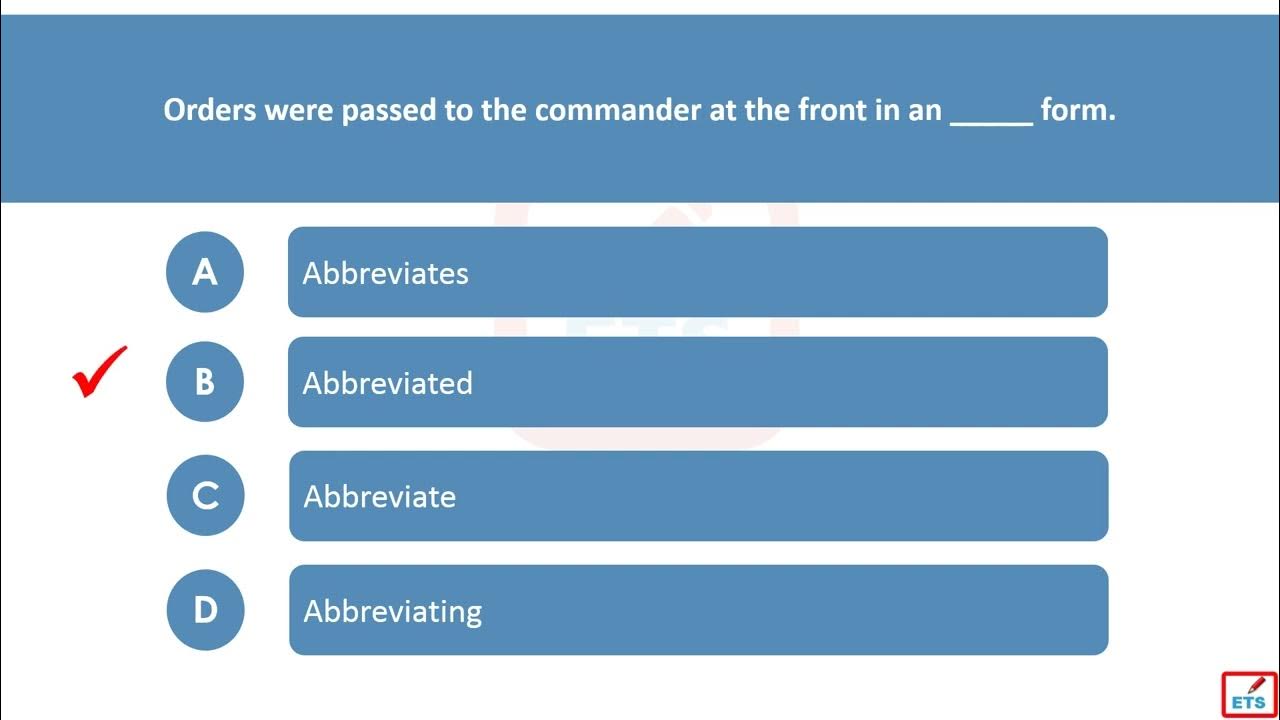
English Verb Tenses: Abbreviate, Abbreviates, Abbreviated, A...
40K views · Mar 27, 2023 englishteststore.net
Abbreviate, Abbreviates, Abbreviated, Abbreviating Quiz EnglishTestStore ►https://englishteststore.net/ Facebook ►https://www.facebook.com/englishteststore.net/ Twitter ►https://twitter.com/englishteststor
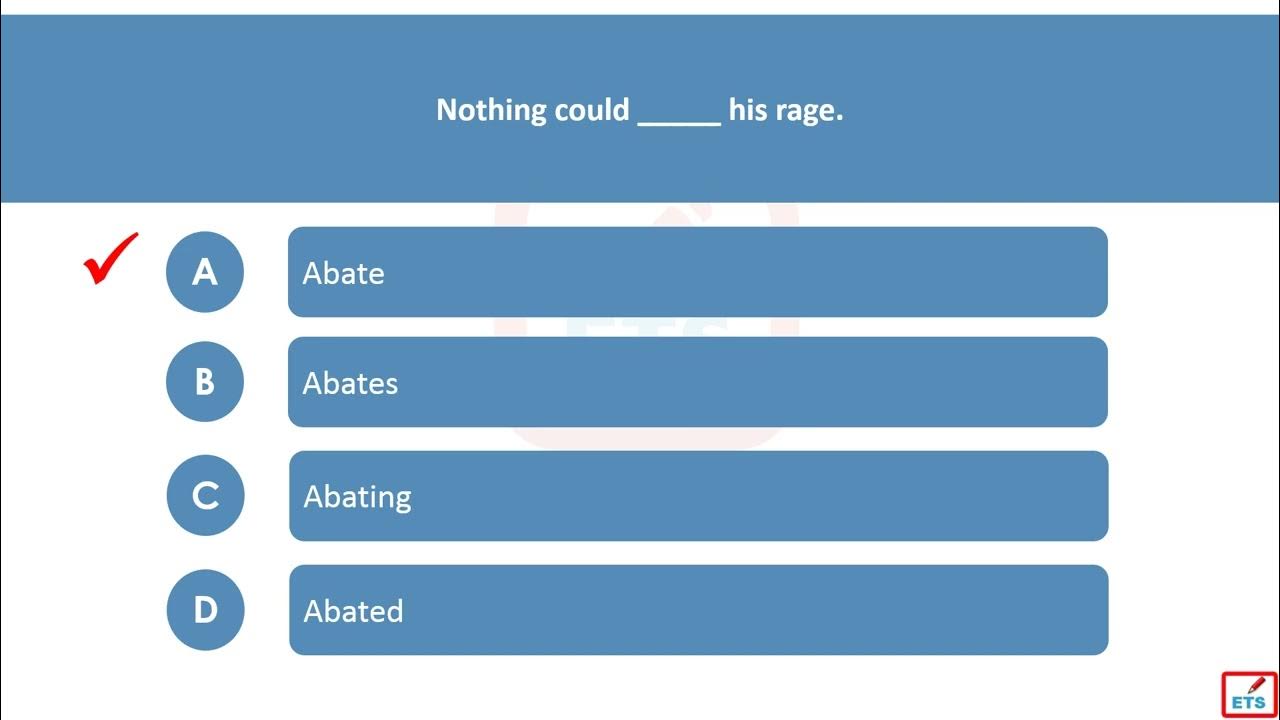
English Verb Tenses: Abate, Abates, Abated, Abating Quiz
28K views · Mar 27, 2023 englishteststore.net
Abate, Abates, Abated, Abating Quiz EnglishTestStore ►https://englishteststore.net/ Facebook ►https://www.facebook.com/englishteststore.net/ Twitter ►https://twitter.com/englishteststor
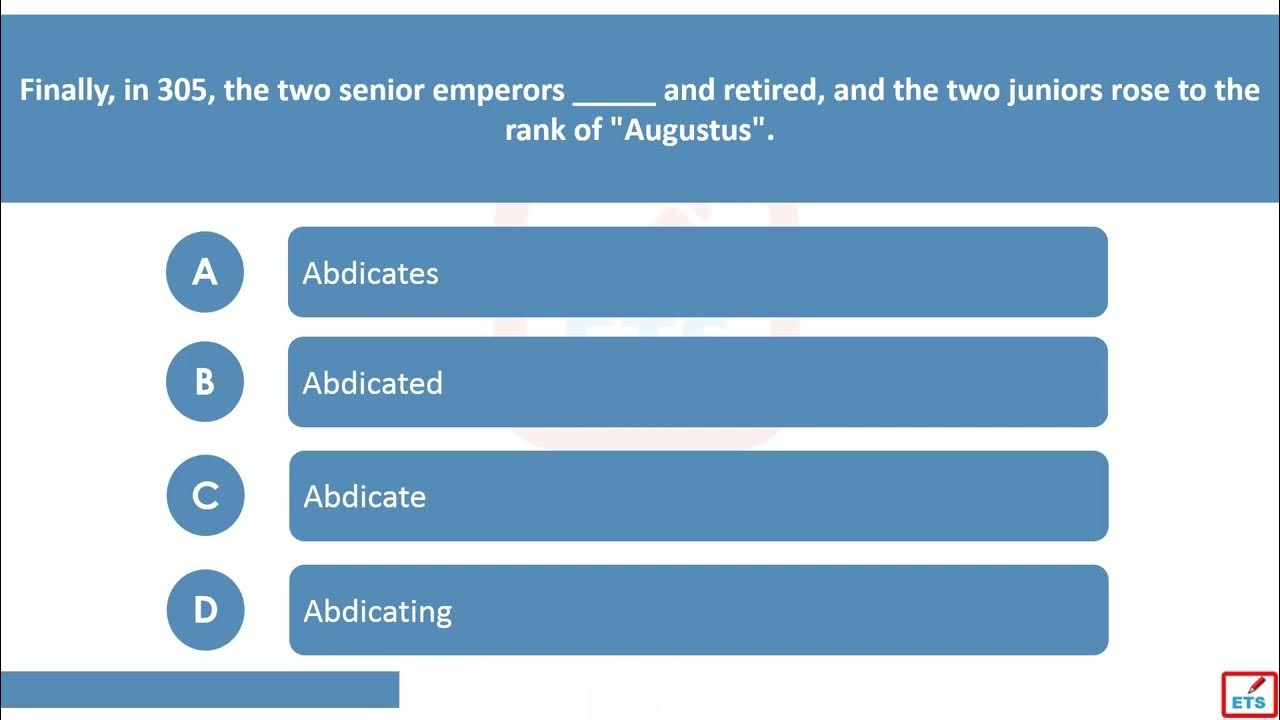
English Verb Tenses: Abdicate, Abdicates, Abdicated, Abdicat...
6K views · Mar 27, 2023 englishteststore.net
Abdicate, Abdicates, Abdicated, Abdicating Quiz EnglishTestStore ►https://englishteststore.net/ Facebook ►https://www.facebook.com/englishteststore.net/ Twitter ►https://twitter.com/englishteststor
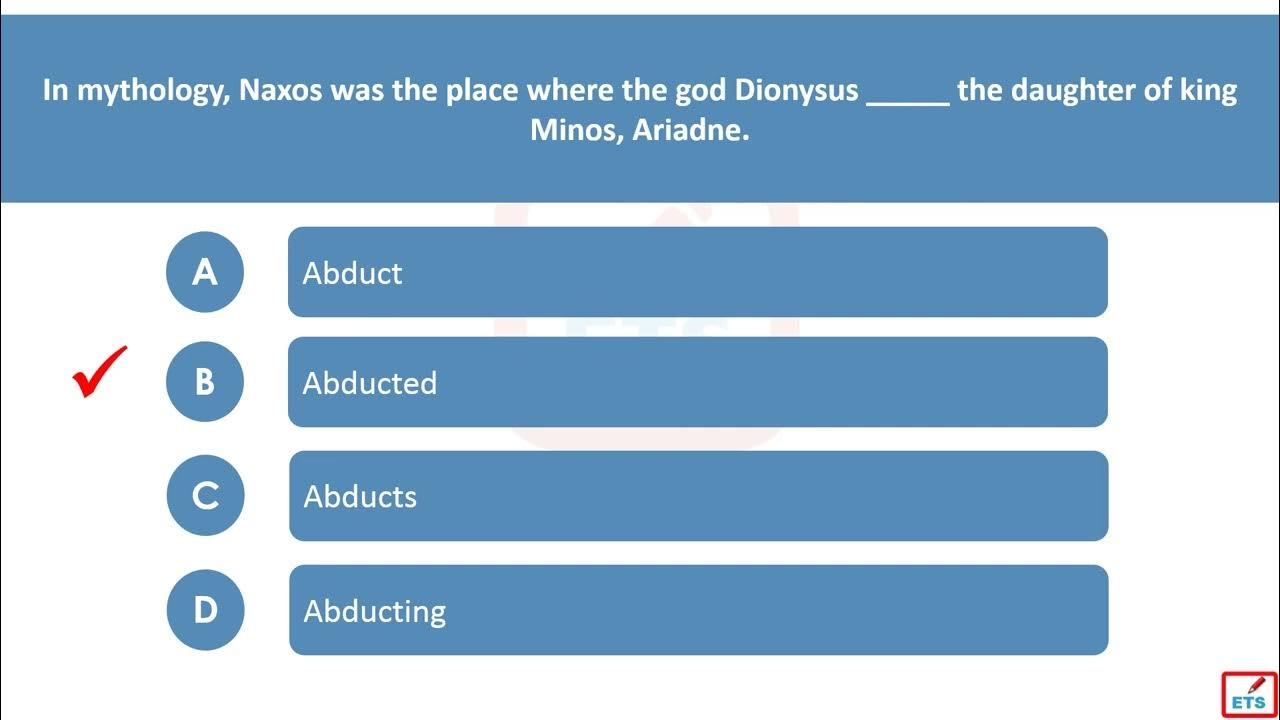
English Verb Tenses: Abduct, Abducts, Abducted, Abducting Qu...
12K views · Mar 27, 2023 englishteststore.net
Abduct, Abducts, Abducted, Abducting Quiz EnglishTestStore ►https://englishteststore.net/ Facebook ►https://www.facebook.com/englishteststore.net/ Twitter ►https://twitter.com/englishteststor

English Verb Tenses: Abet, Abets, Abetted, Abetting Quiz
12K views · Mar 27, 2023 englishteststore.net
Abet, Abets, Abetted, Abetting Quiz EnglishTestStore ►https://englishteststore.net/ Facebook ►https://www.facebook.com/englishteststore.net/ Twitter ►https://twitter.com/englishteststor
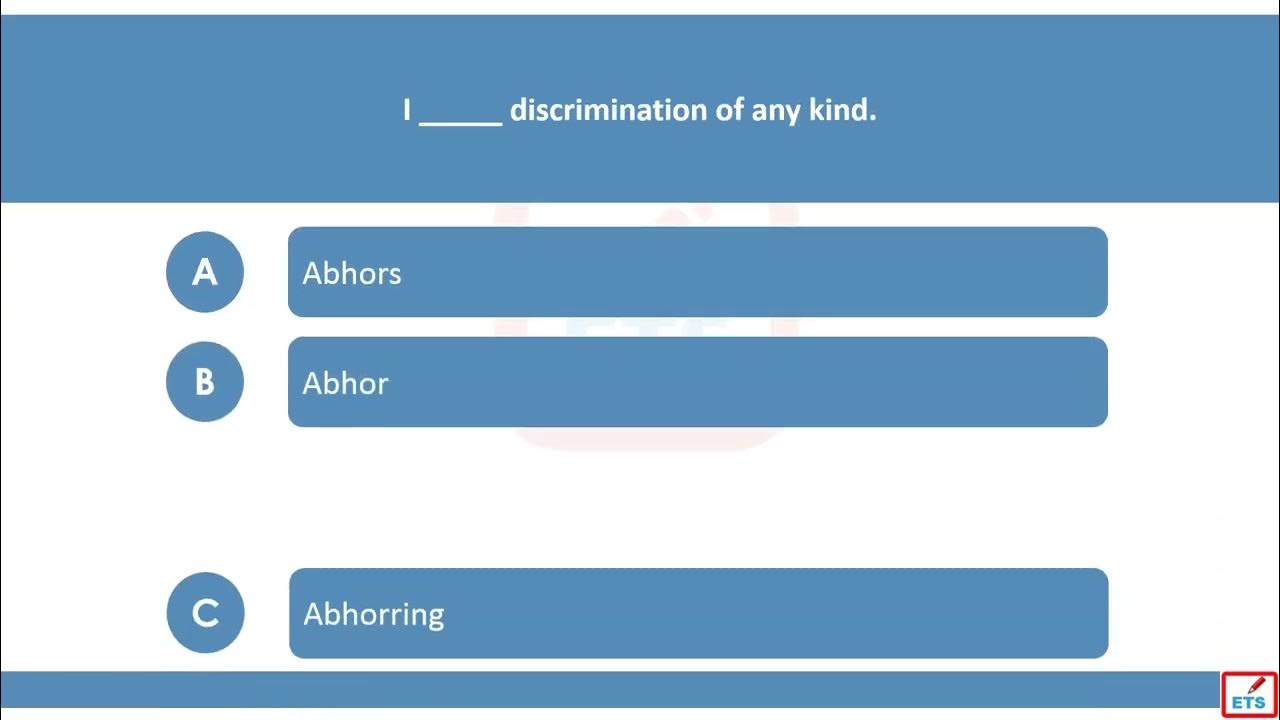
English Verb Tenses: Abhor, Abhors, Abhorred, Abhorring Quiz
14K views · Mar 27, 2023 englishteststore.net
Abhor, Abhors, Abhorred, Abhorring Quiz EnglishTestStore ►https://englishteststore.net/ Facebook ►https://www.facebook.com/englishteststore.net/ Twitter ►https://twitter.com/englishteststor
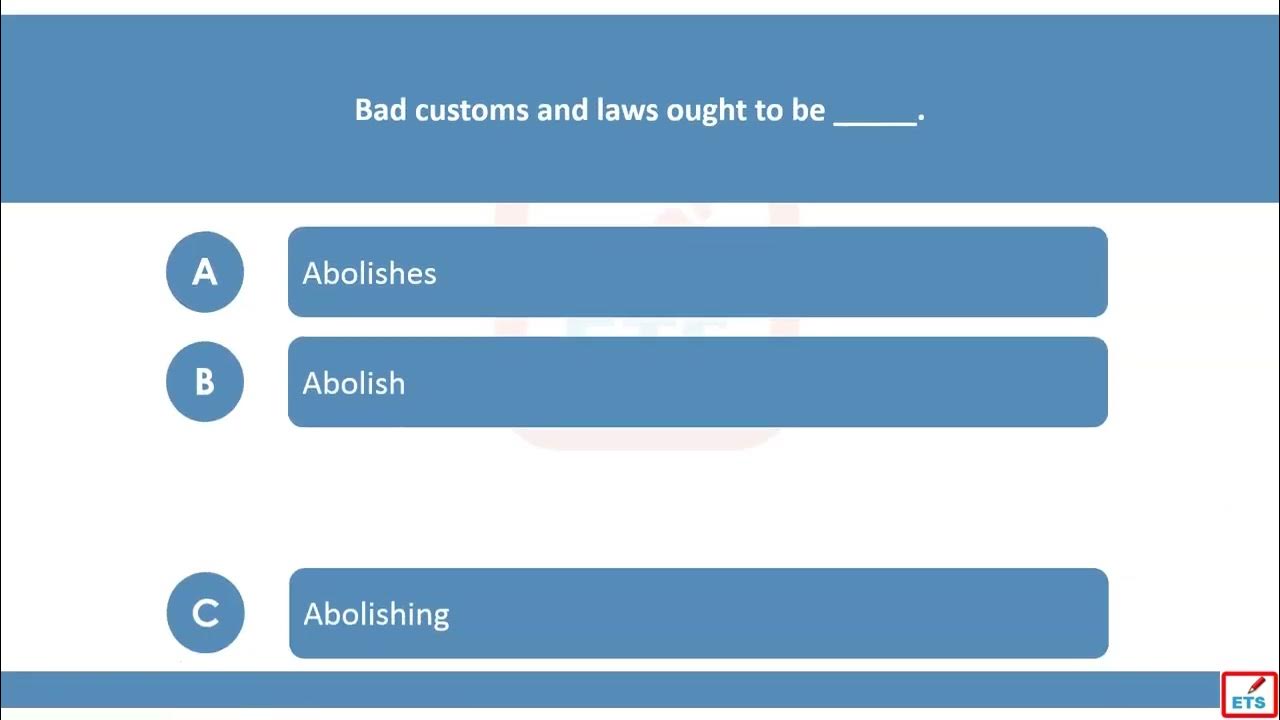
English Verb Tenses: Abolish, Abolishes, Abolished, Abolishi...
16K views · Mar 27, 2023 englishteststore.net
Abolish, Abolishes, Abolished, Abolishing Quiz EnglishTestStore ►https://englishteststore.net/ Facebook ►https://www.facebook.com/englishteststore.net/ Twitter ►https://twitter.com/englishteststor
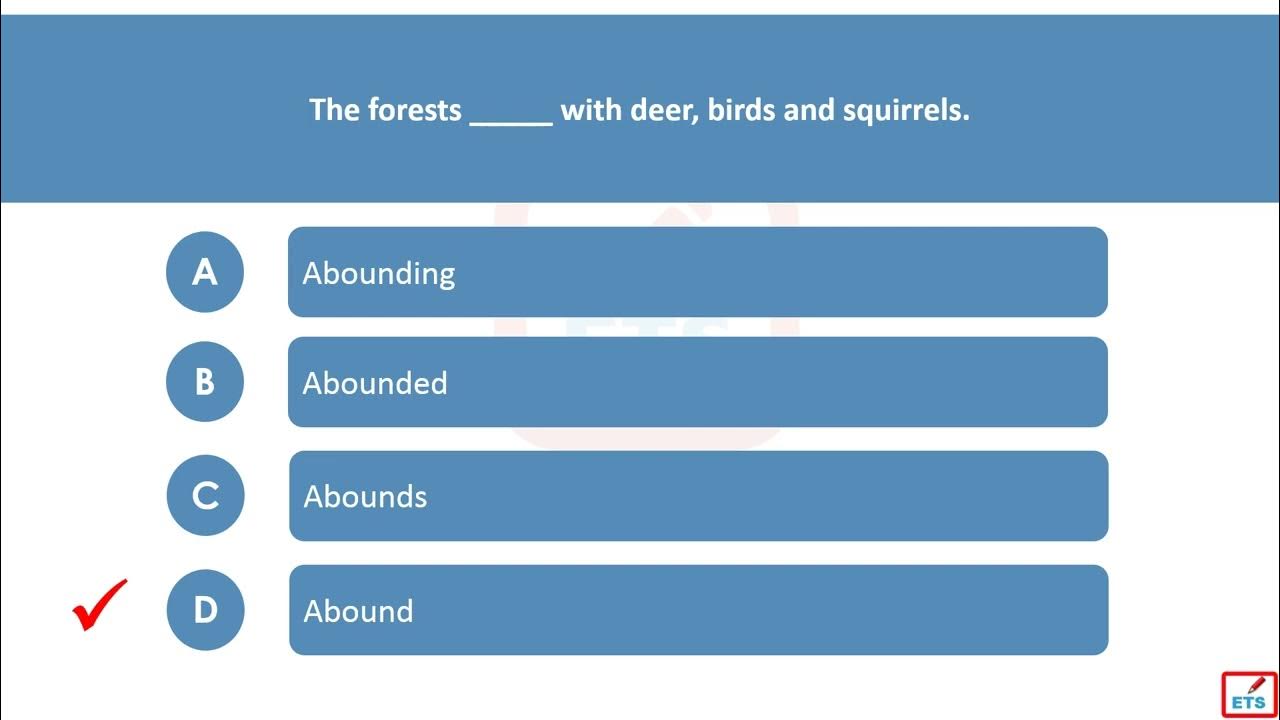
English Verb Tenses: Abound, Abounds, Abounded, Abounding Qu...
51K views · Mar 27, 2023 englishteststore.net
Abound, Abounds, Abounded, Abounding Quiz EnglishTestStore ►https://englishteststore.net/ Facebook ►https://www.facebook.com/englishteststore.net/ Twitter ►https://twitter.com/englishteststor
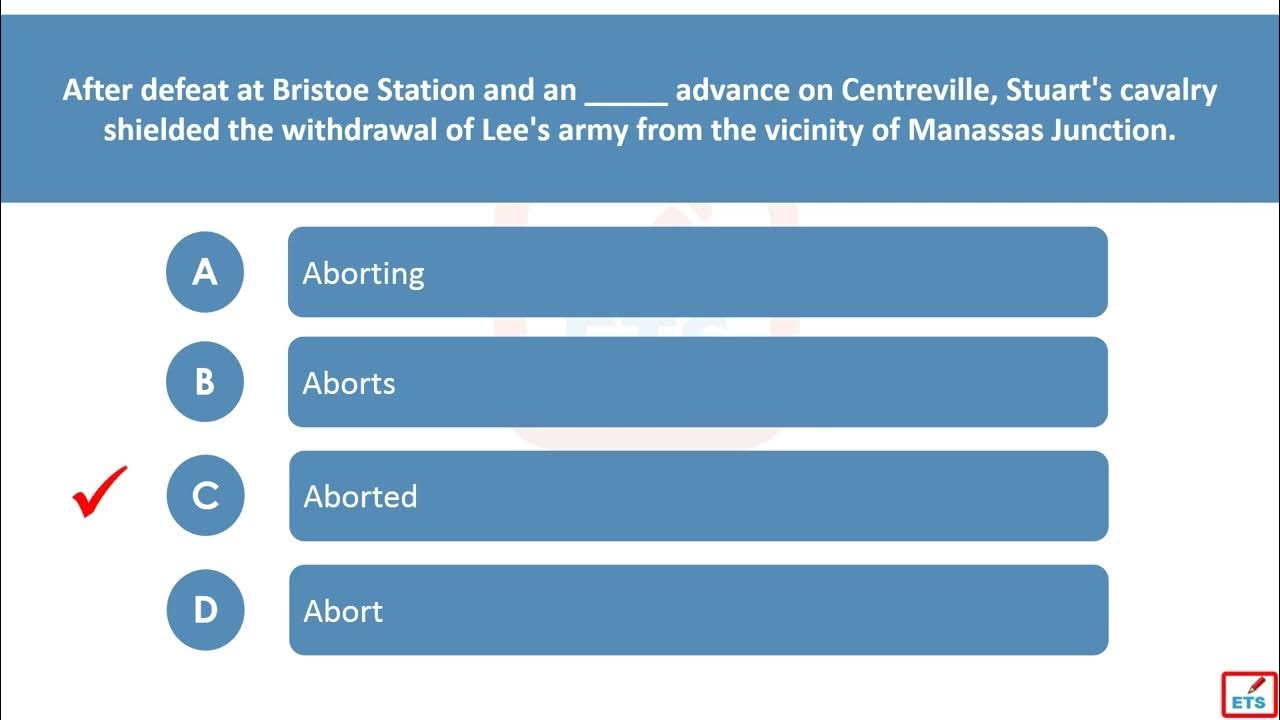
English Verb Tenses: Abort, Aborts, Aborted, Aborting Quiz
8K views · Mar 27, 2023 englishteststore.net
Abort, Aborts, Aborted, Aborting Quiz EnglishTestStore ►https://englishteststore.net/ Facebook ►https://www.facebook.com/englishteststore.net/ Twitter ►https://twitter.com/englishteststor

English Verb Tenses: Abscond, Absconds, Absconded, Abscondin...
16K views · Mar 27, 2023 englishteststore.net
Abscond, Absconds, Absconded, Absconding Quiz EnglishTestStore ►https://englishteststore.net/ Facebook ►https://www.facebook.com/englishteststore.net/ Twitter ►https://twitter.com/englishteststor

English Verb Tenses: Accede, Accedes, Acceded, Acceding Quiz
13K views · Mar 27, 2023 englishteststore.net
Accede, Accedes, Acceded, Acceding Quiz EnglishTestStore ►https://englishteststore.net/ Facebook ►https://www.facebook.com/englishteststore.net/ Twitter ►https://twitter.com/englishteststor
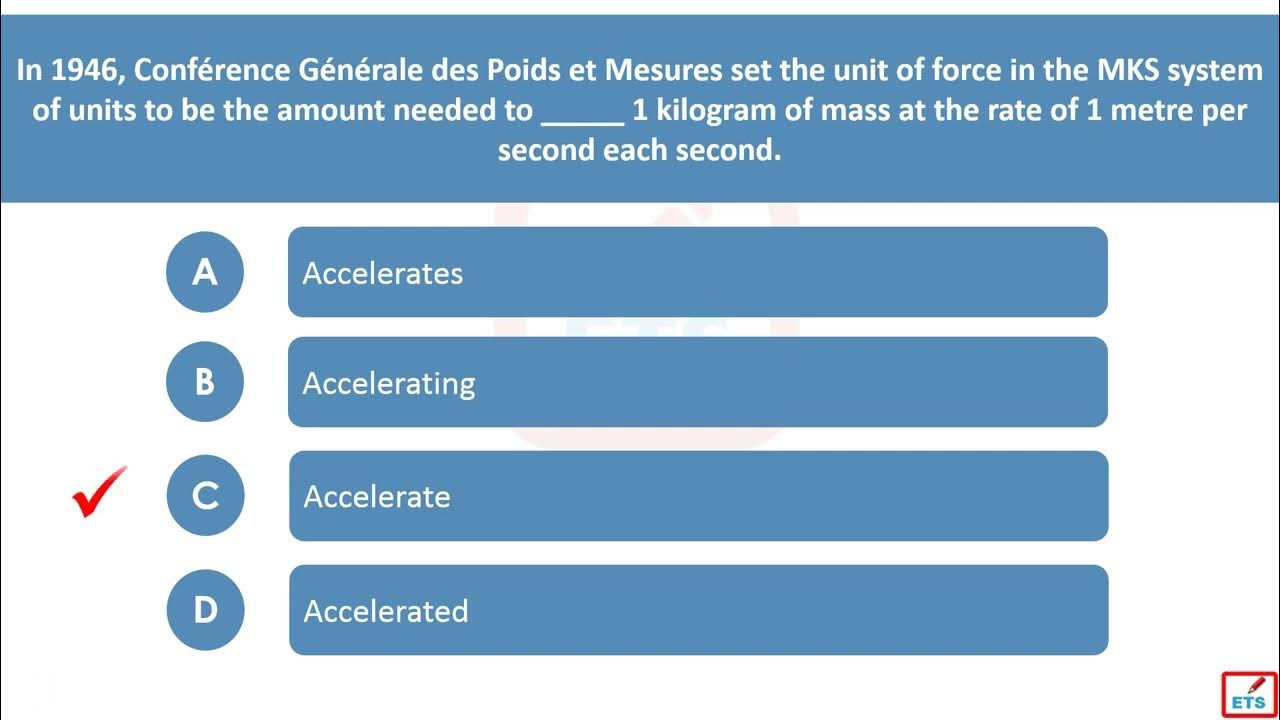
English Verb Tenses: Accelerate, Accelerates, Accelerated, A...
44K views · Mar 27, 2023 englishteststore.net
Accelerate, Accelerates, Accelerated, Accelerating Quiz EnglishTestStore ►https://englishteststore.net/ Facebook ►https://www.facebook.com/englishteststore.net/ Twitter ►https://twitter.com/englishteststor
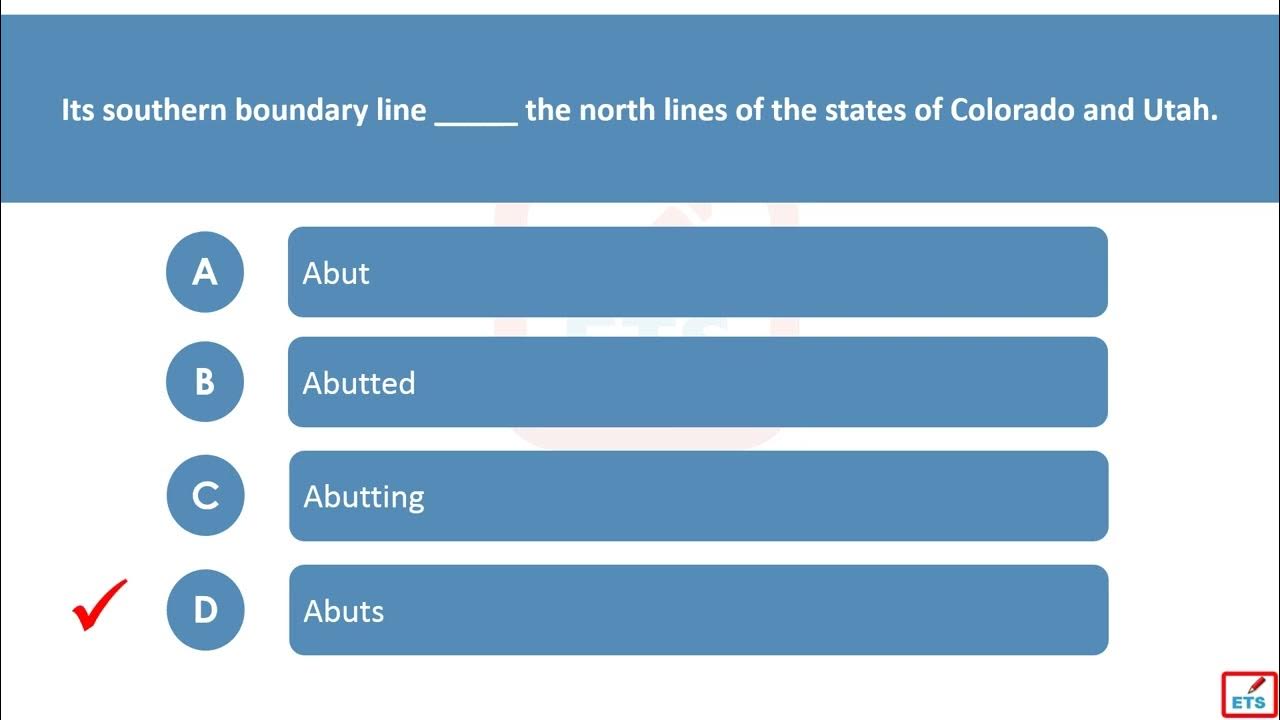
English Verb Tenses: Abut, Abuts, Abutted, Abutting Quiz
15K views · Mar 27, 2023 englishteststore.net
Abut, Abuts, Abutted, Abutting Quiz EnglishTestStore ►https://englishteststore.net/ Facebook ►https://www.facebook.com/englishteststore.net/ Twitter ►https://twitter.com/englishteststor
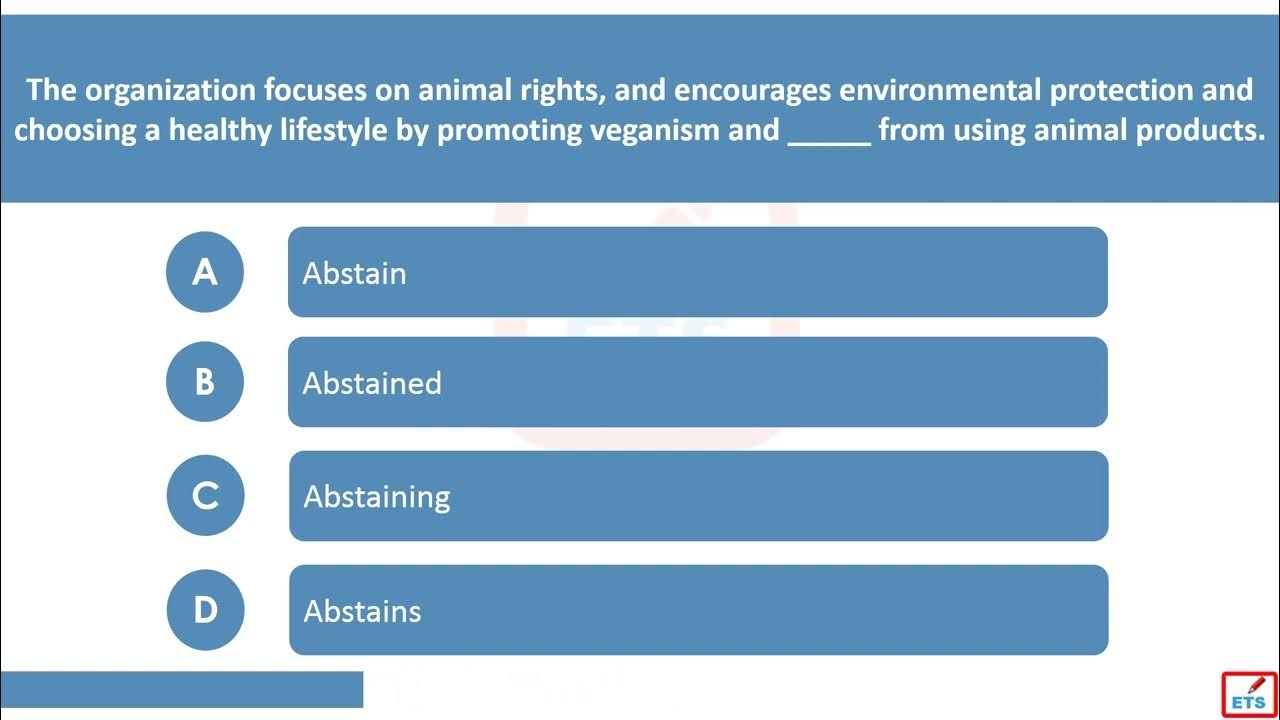
English Verb Tenses: Abstain, Abstains, Abstained, Abstainin...
8K views · Mar 27, 2023 englishteststore.net
Abstain, Abstains, Abstained, Abstaining Quiz EnglishTestStore ►https://englishteststore.net/ Facebook ►https://www.facebook.com/englishteststore.net/ Twitter ►https://twitter.com/englishteststor
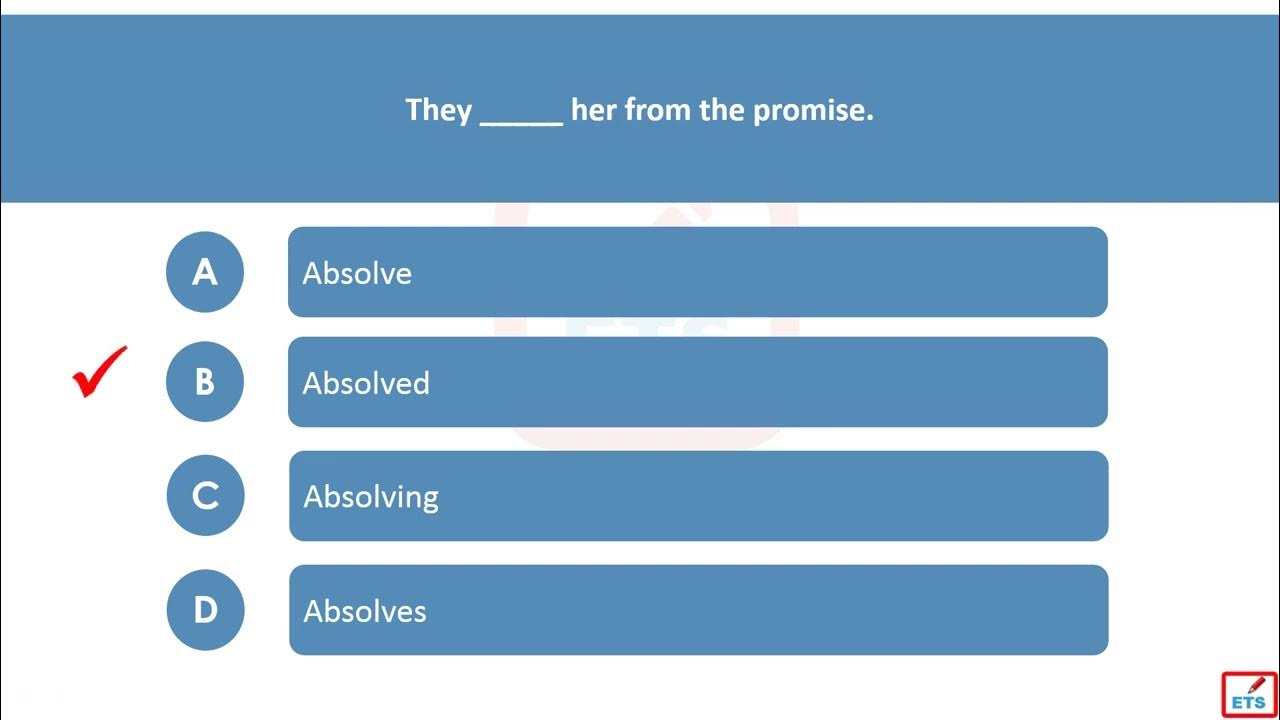
English Verb Tenses: Absolve, Absolves, Absolved, Absolving ...
14K views · Mar 27, 2023 englishteststore.net
Absolve, Absolves, Absolved, Absolving Quiz EnglishTestStore ►https://englishteststore.net/ Facebook ►https://www.facebook.com/englishteststore.net/ Twitter ►https://twitter.com/englishteststor
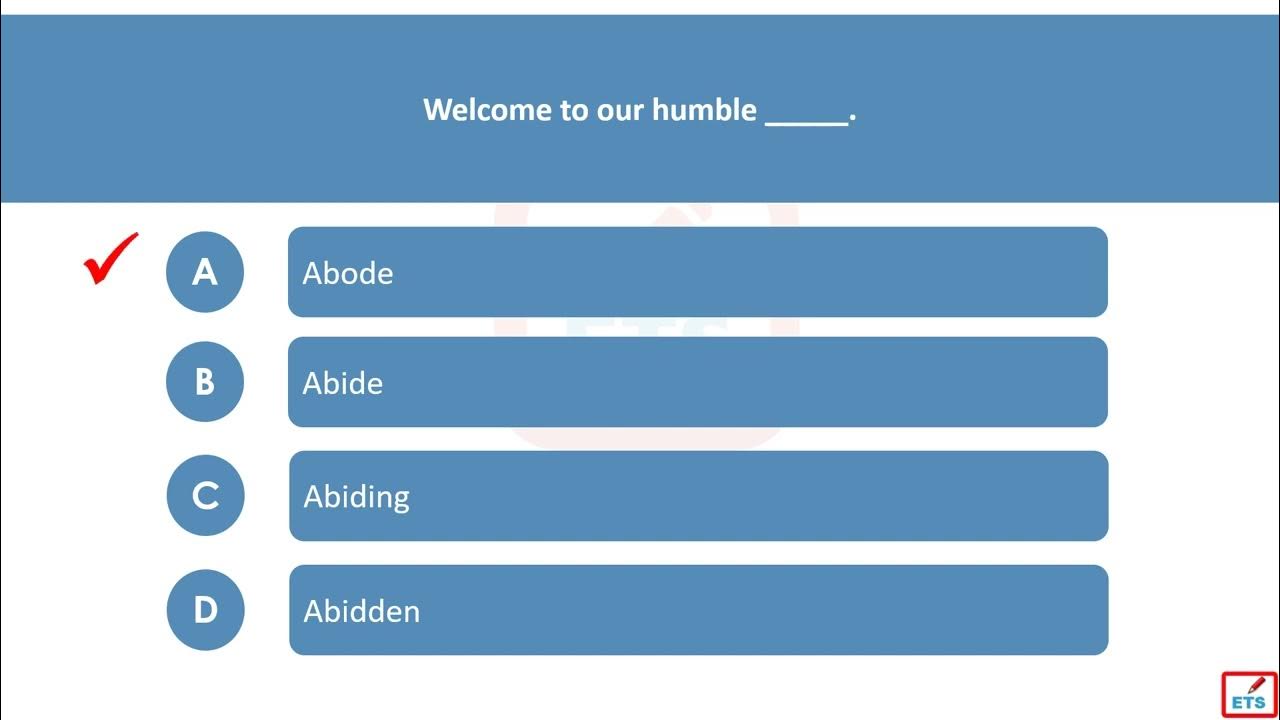
Abide, Abode, Abidden, Abiding Quiz
183 views · Mar 31, 2023 englishteststore.net
Abide, Abode, Abidden, Abiding Quiz. This video helps you learn English tenses and verbs. You can practice English tenses and verbs online by taking the quiz at https://englishteststore.net. Thank you for watching! Please subscribe, share, and like the video. EnglishTestStore ►https://englishteststore.net/ Facebook ►https://www.facebook.com/englishteststore.net/ Twitter ►https://twitter.com/englishteststor
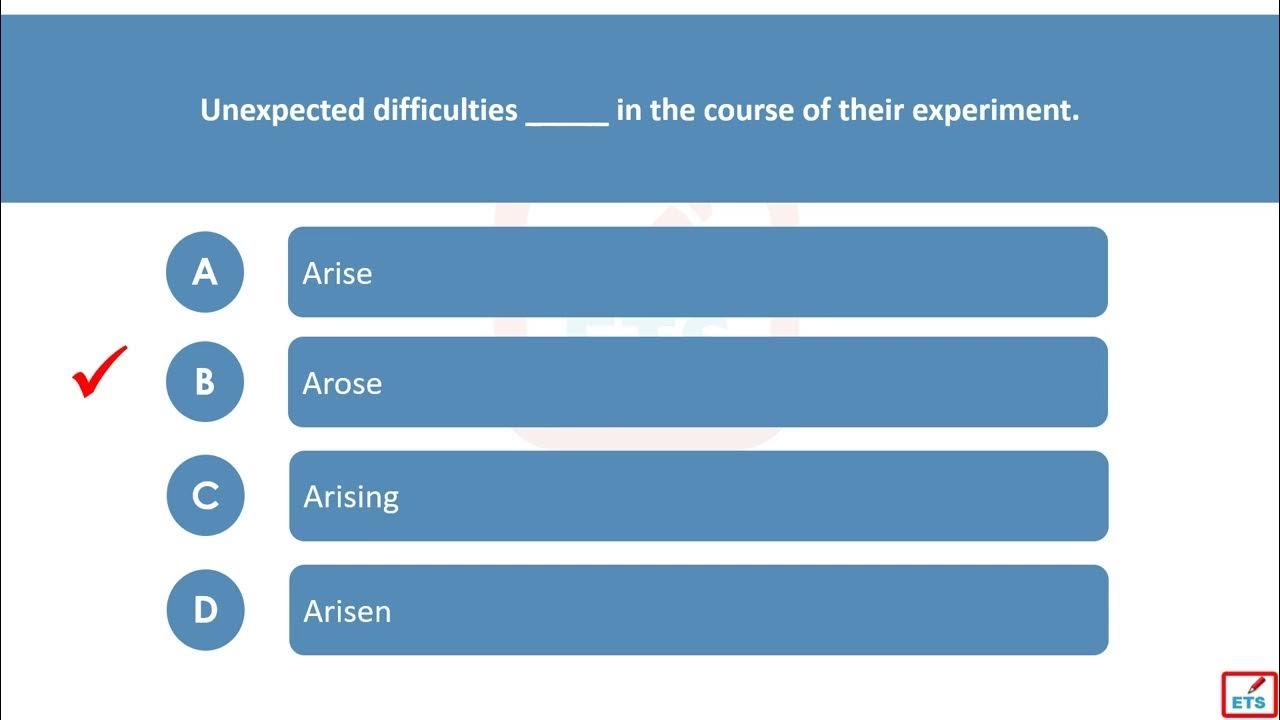
Arise, Arose, Arisen, Arising Quiz
206 views · Mar 31, 2023 englishteststore.net
Arise, Arose, Arisen, Arising Quiz. This video helps you learn English tenses and verbs. You can practice English tenses and verbs online by taking the quiz at https://englishteststore.net. Thank you for watching! Please subscribe, share, and like the video. EnglishTestStore ►https://englishteststore.net/ Facebook ►https://www.facebook.com/englishteststore.net/ Twitter ►https://twitter.com/englishteststor
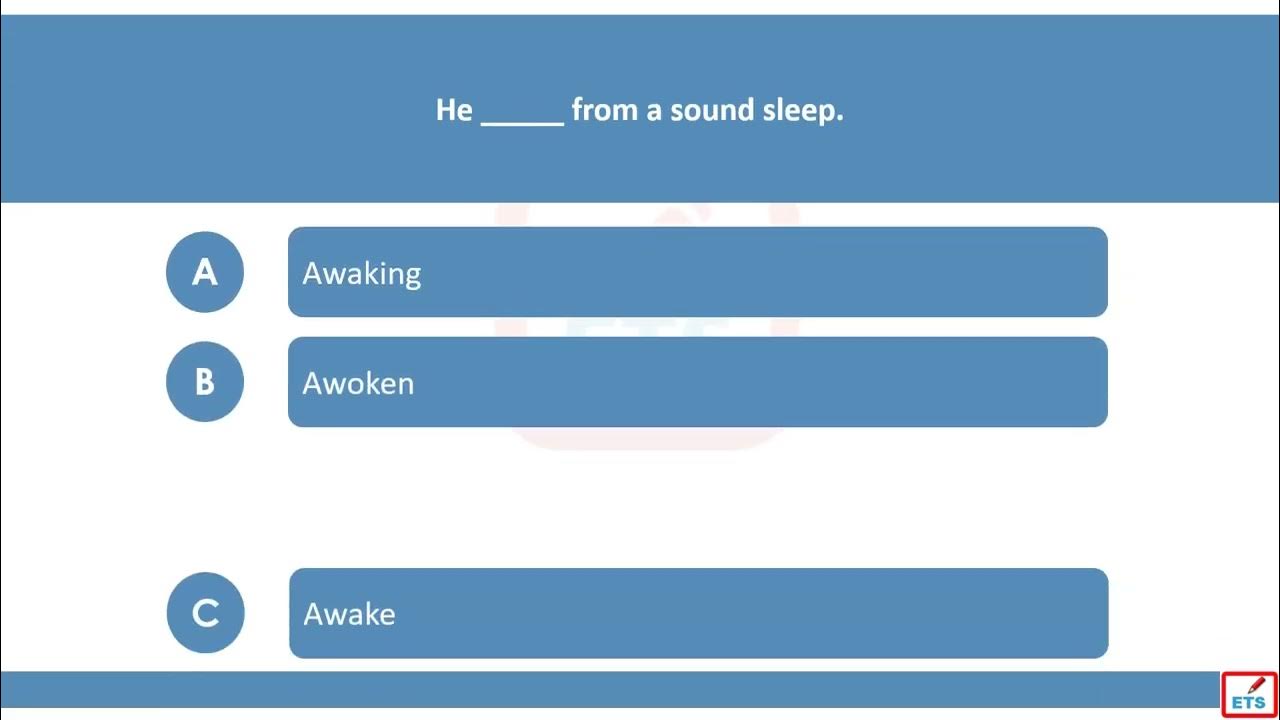
Awake, Awoke, Awoken, Awaking Quiz
101 views · Mar 31, 2023 englishteststore.net
Awake, Awoke, Awoken, Awaking Quiz. This video helps you learn English tenses and verbs. You can practice English tenses and verbs online by taking the quiz at https://englishteststore.net. Thank you for watching! Please subscribe, share, and like the video. EnglishTestStore ►https://englishteststore.net/ Facebook ►https://www.facebook.com/englishteststore.net/ Twitter ►https://twitter.com/englishteststor
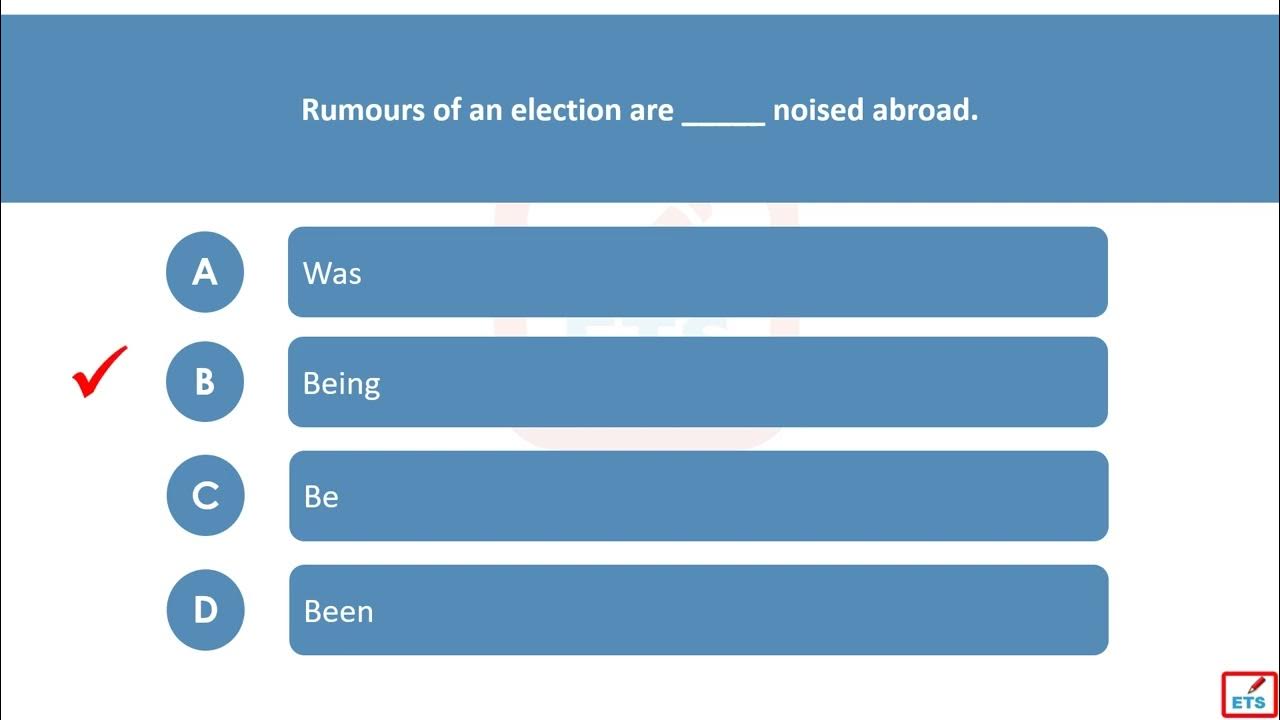
Be, Was, Been, Being Quiz
626 views · Mar 31, 2023 englishteststore.net
Be, Was, Been, Being Quiz. This video helps you learn English tenses and verbs. You can practice English tenses and verbs online by taking the quiz at https://englishteststore.net. Thank you for watching! Please subscribe, share, and like the video. EnglishTestStore ►https://englishteststore.net/ Facebook ►https://www.facebook.com/englishteststore.net/ Twitter ►https://twitter.com/englishteststor

Bear, Bore, Born, Bearing QuizEnglish Verb Tenses:
317 views · Mar 31, 2023 englishteststore.net
Bear, Bore, Born, Bearing Quiz. This video helps you learn English tenses and verbs. You can English Verb Tenses: practice English tenses and verbs online by taking the quiz at https://englishteststore.net. Thank you for watching! Please subscribe, share, and like the English Verb Tenses: video. EnglishTestStore ►https://englishteststore.net/ Facebook ►https://www.facebook.com/englishteststore.net/ Twitter ►https://twitter.com/englishteststor

English Verb Tenses: Hang, Hangs, Hung, Hanging Quiz
928 views · Apr 2, 2023 englishteststore.net
Hang, Hangs, Hung, Hanging Quiz. This video helps you learn English tenses and verbs. You can practice English tenses and verbs online by taking the quiz at https://englishteststore.net/index.php?option=com_content&view=category&id=654&Itemid=1130 Download this quiz as worksheet PDF at https://englishteststore.net/index.php?option=com_docman&view=list&slug=irregular-verbs&Itemid=721 Thank you for watching! Please subscribe, share, and like the video.
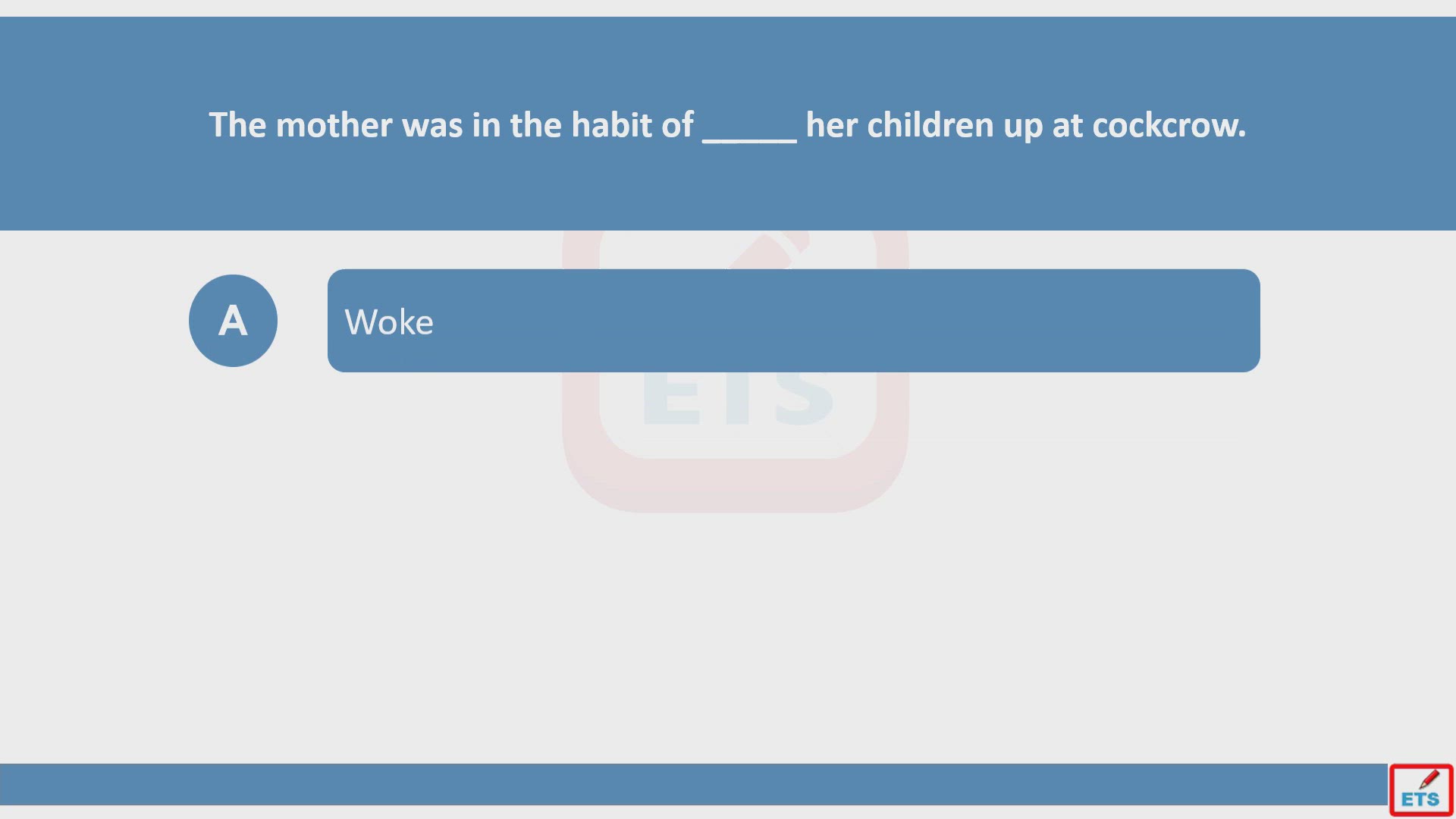
English Verb Tenses: Wake, Woke, Woken, Waking Quiz
163 views · Apr 6, 2023 englishteststore.net
Wake, Woke, Woken, Waking Quiz. . This video helps you learn English tenses and verbs. You can practice English tenses and verbs online by taking the quiz at https://englishteststore.net/index.php?option=com_content&view=category&id=654&Itemid=1130 Download this quiz as worksheet PDF at https://englishteststore.net/index.php?option=com_docman&view=list&slug=irregular-verbs&Itemid=721 Thank you for watching! Please subscribe, share, and like the video.
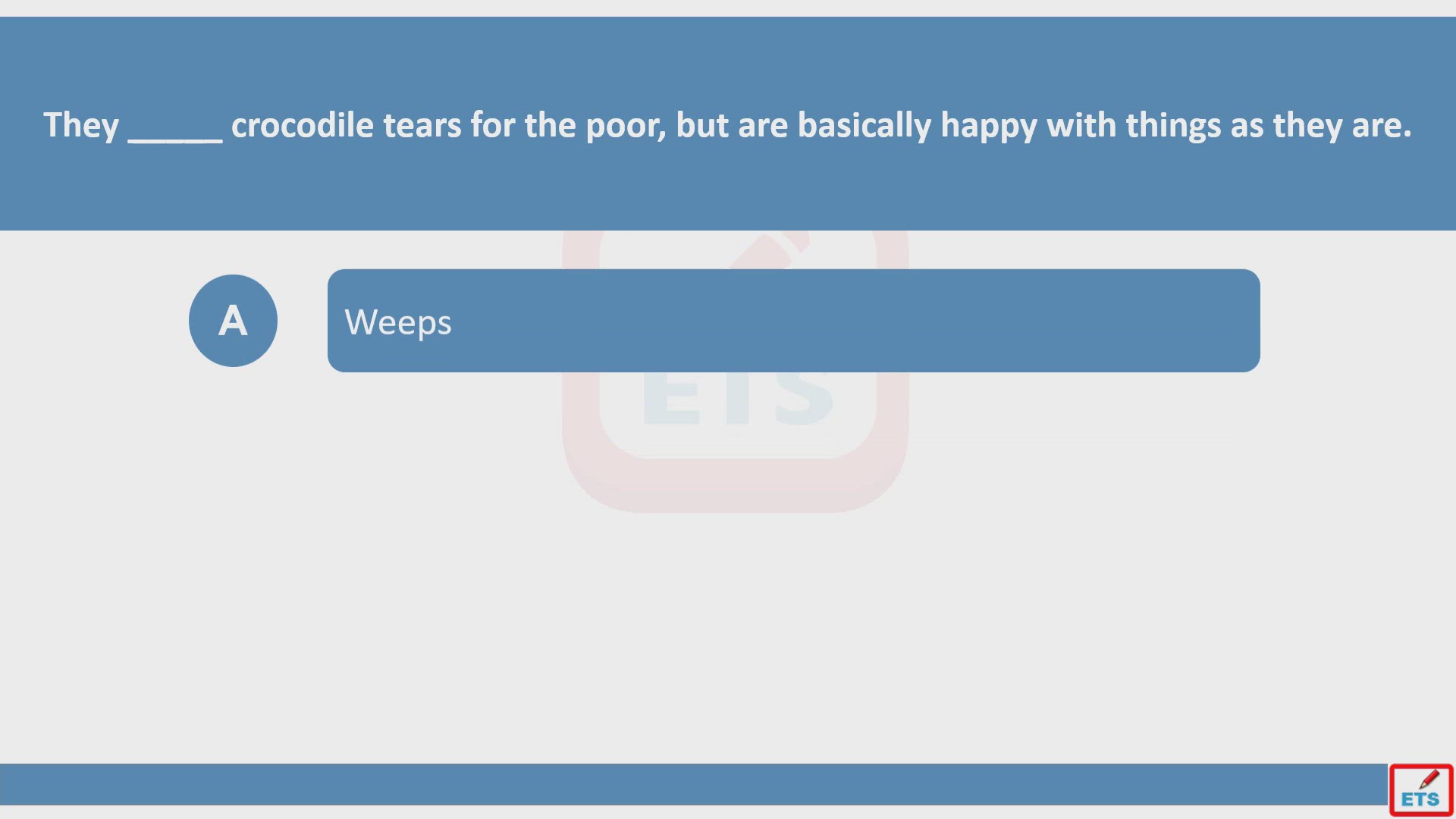
English Verb Tenses: Weep, Weeps, Wept, Weeping Quiz
551 views · Apr 6, 2023 englishteststore.net
Weep, Weeps, Wept, Weeping Quiz. This video helps you learn English tenses and verbs. You can practice English tenses and verbs online by taking the quiz at https://englishteststore.net/index.php?option=com_content&view=category&id=654&Itemid=1130 Download this quiz as worksheet PDF at https://englishteststore.net/index.php?option=com_docman&view=list&slug=irregular-verbs&Itemid=721 Thank you for watching! Please subscribe, share, and like the video.

English Verb Tenses: Withdraw, Withdrew, Withdrawn, Withdraw...
1 views · Apr 7, 2023 englishteststore.net
Withdraw, Withdrew, Withdrawn, Withdrawing Quiz. This video helps you learn English tenses and verbs. You can practice English tenses and verbs online by taking the quiz at https://englishteststore.net/index.php?option=com_content&view=category&id=654&Itemid=1130 Download this quiz as worksheet PDF at https://englishteststore.net/index.php?option=com_docman&view=list&slug=irregular-verbs&Itemid=721 Thank you for watching! Please subscribe, share, and like the video.
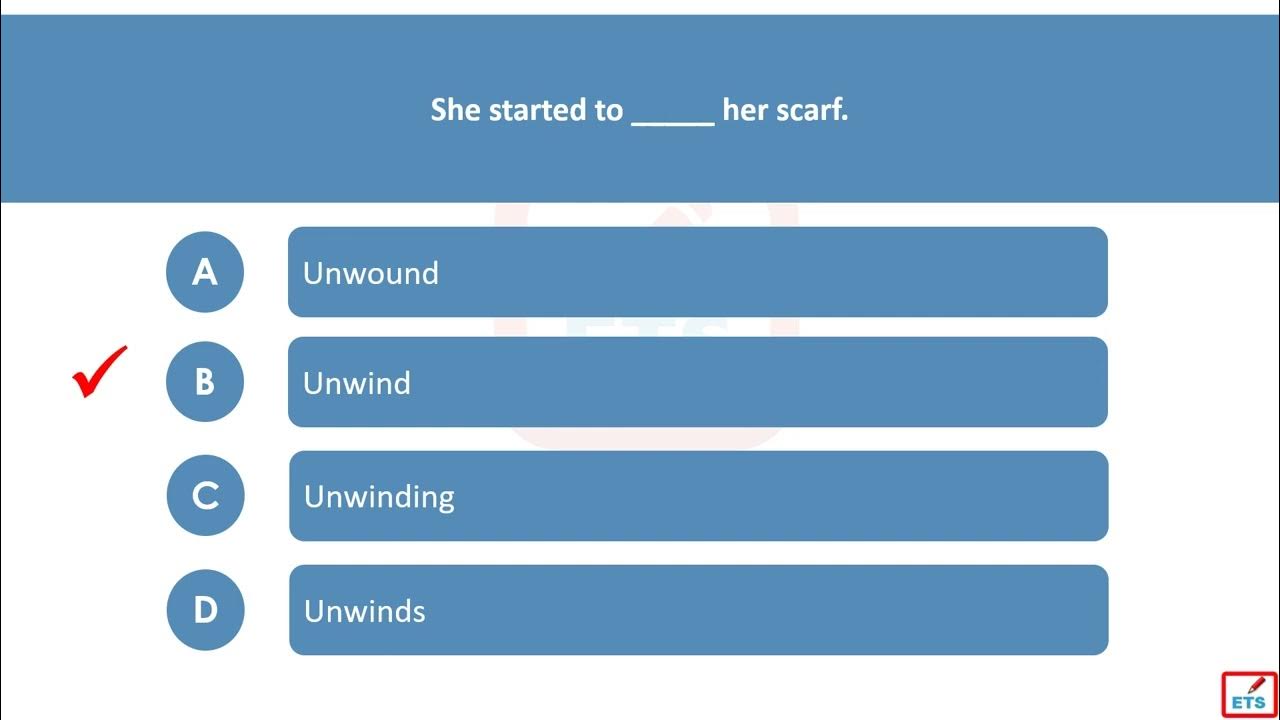
English Verb Tenses: Unwind, Unwinds, Unwound, Unwinding Qui...
4 views · Apr 4, 2023 englishteststore.net
Unwind, Unwinds, Unwound, Unwinding Quiz. This video helps you learn English tenses and verbs. You can practice English tenses and verbs online by taking the quiz at https://englishteststore.net/index.php?option=com_content&view=category&id=654&Itemid=1130 Download this quiz as worksheet PDF at https://englishteststore.net/index.php?option=com_docman&view=list&slug=irregular-verbs&Itemid=721 Thank you for watching! Please subscribe, share, and like the video.

Top 10 Commonly Confused Words in Global Ecology
431 views · Dec 5, 2023 englishteststore.net
Top 10 Commonly Confused Words in Global Ecology 1. Biodiversity vs. Species Richness Often used interchangeably, biodiversity and species richness have distinct meanings. Biodiversity refers to the variety of life forms in a particular ecosystem, including genetic, species, and ecosystem diversity. On the other hand, species richness simply refers to the number of different species in an area. While related, these terms highlight different aspects of ecological communities. 2. Climate vs. Weather Climate and weather are two terms that are often confused. Weather refers to the short-term atmospheric conditions, such as temperature, precipitation, and wind. On the other hand, climate represents the long-term patterns of weather in a particular region. While weather can change within hours, climate is more stable and represents the average conditions over a longer period. 3. Habitat vs. Niche Habitat and niche are terms used to describe an organism's place in its environment. A habitat refers to the physical location where an organism lives, including the biotic and abiotic factors. On the other hand, a niche represents the role and position of an organism within its habitat, including its interactions with other species and its utilization of resources. While a habitat can be shared by multiple species, each species has its own unique niche. 4. Ecosystem vs. Community Ecosystem and community are terms used to describe different levels of ecological organization. An ecosystem refers to a biological community of interacting organisms and their physical environment. It includes both the living (biotic) and non-living (abiotic) components. On the other hand, a community refers to the assemblage of different populations of species in a particular area. While an ecosystem is a broader term, a community represents a specific group of organisms. 5. Endangered vs. Threatened When it comes to species conservation, the terms 'endangered' and 'threatened' are often used. Endangered species are those that face a very high risk of extinction in the near future. On the other hand, threatened species are those that are likely to become endangered if conservation measures are not taken. Both these terms highlight the vulnerability of certain species, but 'endangered' indicates a higher level of risk. 6. Primary vs. Secondary Succession Succession refers to the process of ecological change in an area over time. Primary succession occurs in areas where no soil or organisms exist, such as after a volcanic eruption. In contrast, secondary succession occurs in areas where the soil is present, but the existing community has been disturbed, such as after a forest fire. While both types of succession involve the establishment of a new community, the starting conditions differ. 7. Renewable vs. Non-renewable Resources Resources can be classified as renewable or non-renewable. Renewable resources are those that can be replenished or replaced naturally over time, such as solar energy or wind power. On the other hand, non-renewable resources are those that are finite and cannot be replenished, such as fossil fuels. Understanding the distinction between these types of resources is crucial for sustainable resource management. 8. Keystone Species vs. Indicator Species Keystone species and indicator species are terms used to describe the ecological importance of certain organisms. A keystone species is one that has a disproportionately large impact on its ecosystem, often affecting other species. An indicator species, on the other hand, is used as a measure of the health or condition of an ecosystem. While both these species play important roles, their ecological functions differ. 9. Immigration vs. Emigration In population ecology, immigration and emigration are terms used to describe the movement of individuals in and out of a population. Immigration refers to the movement of individuals into a population, while emigration refers to the movement of individuals out of a population. These terms are crucial for understanding population dynamics and the factors that influence population size. 10. Producer vs. Consumer In ecological food webs, organisms can be classified as producers or consumers. Producers, often plants, are organisms that can convert sunlight into energy through photosynthesis. Consumers, on the other hand, are organisms that obtain energy by consuming other organisms. Understanding the flow of energy through a food web is essential for understanding ecosystem dynamics.
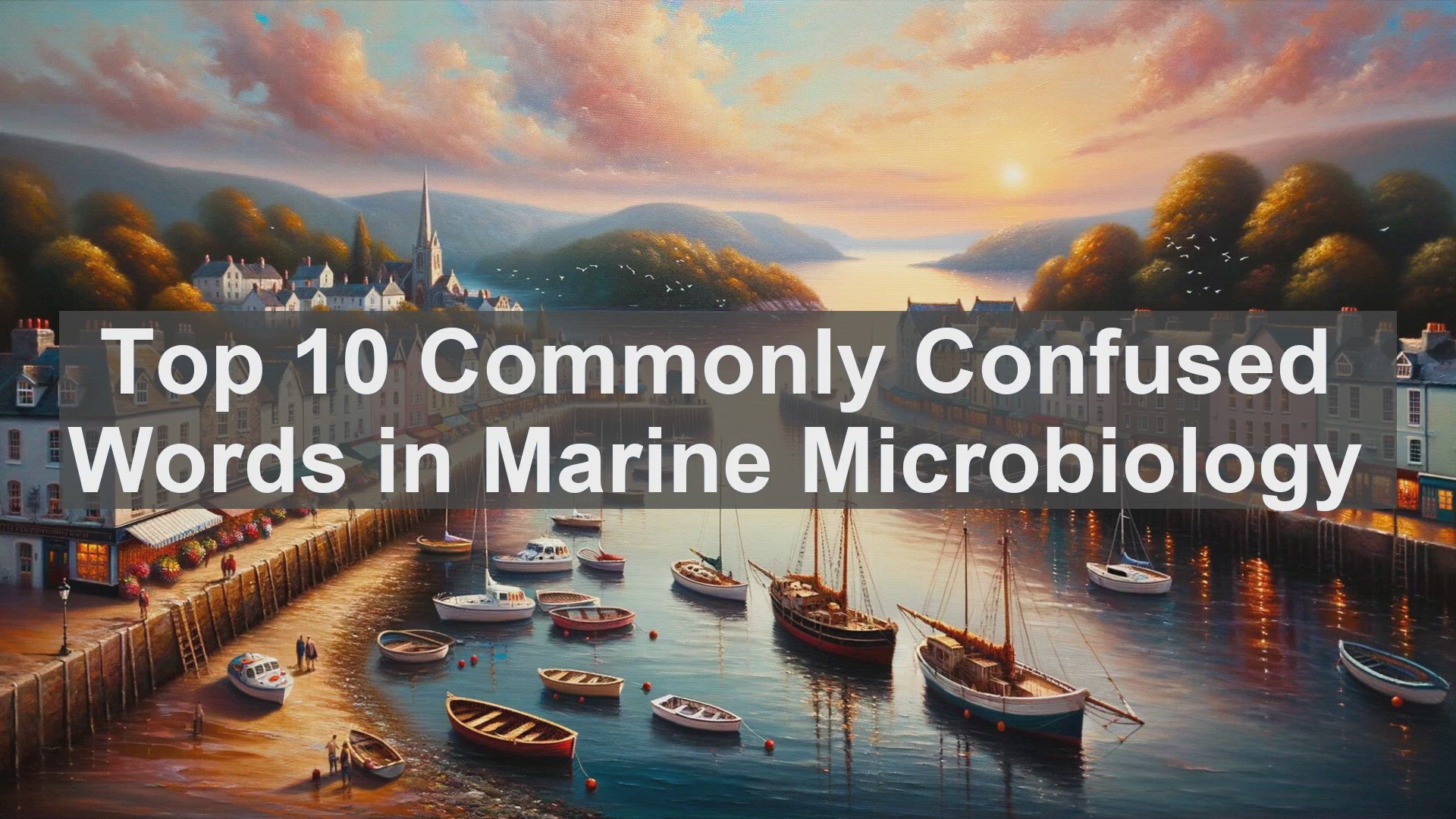
Top 10 Commonly Confused Words in Marine Microbiology
3K views · Dec 5, 2023 englishteststore.net
Top 10 Commonly Confused Words in Marine Microbiology 1. Bacteria vs. Archaea Often used interchangeably, bacteria and archaea are two distinct domains of microorganisms. While both are single-celled, bacteria are found in diverse environments, including marine habitats. On the other hand, archaea are known for their ability to thrive in extreme conditions, such as deep-sea hydrothermal vents. Understanding their differences is essential for accurate classification and research. 2. Plankton vs. Nekton When we think of marine life, we often envision large fish swimming in the open ocean. However, not all organisms have the ability to actively swim against the currents. Plankton refers to the tiny, often microscopic, organisms that drift along with the ocean currents. Nekton, on the other hand, includes larger, more mobile organisms, such as fish, turtles, and marine mammals. Distinguishing between these two categories helps us understand the dynamics of marine ecosystems. 3. Autotroph vs. Heterotroph In any ecosystem, including the marine environment, there are organisms that can produce their own food and those that rely on consuming other organisms. Autotrophs, like algae, use sunlight or inorganic compounds to synthesize organic matter. Heterotrophs, on the other hand, obtain their energy by consuming other organisms. This distinction is crucial in understanding the flow of energy and nutrients in marine food webs. 4. Eutrophication vs. Oligotrophication The balance of nutrients in marine ecosystems plays a significant role in their health. Eutrophication refers to the excessive enrichment of water bodies with nutrients, often due to human activities like agriculture or sewage discharge. This can lead to harmful algal blooms and oxygen depletion. Oligotrophication, on the other hand, is the process of nutrient depletion, often occurring in remote or deep-sea environments. Understanding these processes helps us address and mitigate the impacts of human activities on marine ecosystems. 5. Phytoplankton vs. Zooplankton Plankton, as we discussed earlier, encompasses a wide range of organisms. Within this category, there are two main types: phytoplankton and zooplankton. Phytoplankton are the primary producers, using photosynthesis to convert sunlight into energy. They form the base of the marine food web. Zooplankton, on the other hand, are the consumers, feeding on phytoplankton or other zooplankton. Both are integral to the functioning of marine ecosystems. 6. Benthic vs. Pelagic When we talk about the marine environment, it's not just about the water column. The seafloor, or benthic zone, is a crucial habitat as well. Pelagic, on the other hand, refers to the water column itself. Understanding the differences between these two zones helps us study and conserve the diverse range of organisms that call the ocean home. 7. Symbiosis vs. Mutualism In the complex web of interactions in marine ecosystems, symbiosis and mutualism are two important concepts. Symbiosis refers to a close and long-term association between two organisms, which can be beneficial, detrimental, or neutral. Mutualism, on the other hand, specifically denotes a symbiotic relationship where both organisms benefit. Examples of mutualistic relationships in the marine environment include coral and zooxanthellae. Understanding these relationships enhances our understanding of the interconnectedness of marine life. 8. Dissolved Oxygen vs. Oxygen Saturation Oxygen is crucial for the survival of marine organisms. When we talk about oxygen in the water, there are two main measurements: dissolved oxygen and oxygen saturation. Dissolved oxygen refers to the actual amount of oxygen dissolved in the water, while oxygen saturation is the percentage of the maximum amount of oxygen that the water can hold at a given temperature and pressure. Monitoring these parameters helps us assess the health of marine ecosystems. 9. Estuary vs. Delta Estuaries and deltas are both unique habitats where rivers meet the ocean. While they share some similarities, there are distinct differences. An estuary is a partially enclosed coastal body of water, where freshwater from rivers mixes with saltwater from the ocean. Deltas, on the other hand, are landforms formed by the deposition of sediment carried by rivers. Understanding these features is important for studying coastal processes and the associated biodiversity. 10. Nitrification vs. Denitrification The nitrogen cycle is a crucial biogeochemical process in marine ecosystems.
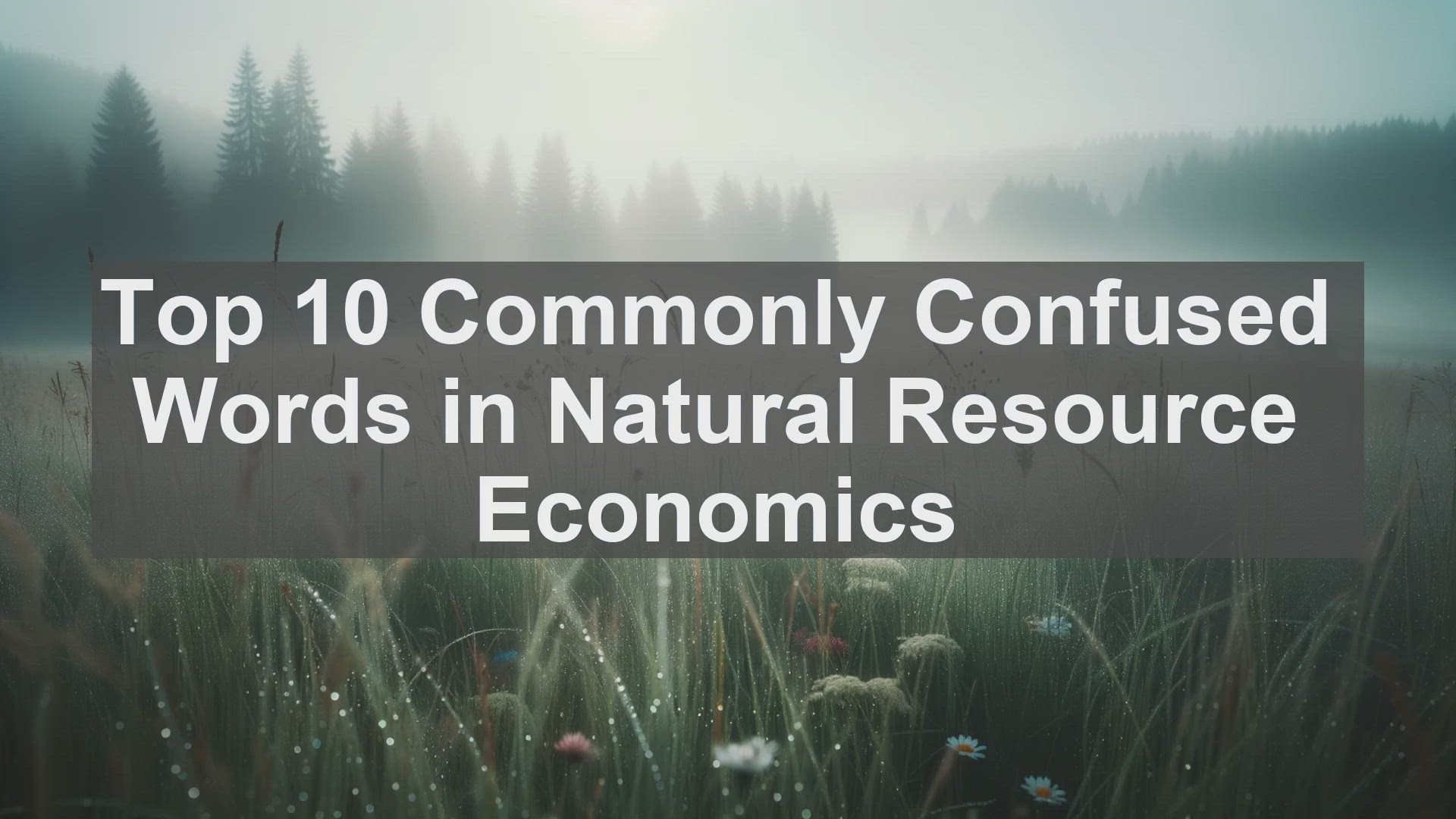
Top 10 Commonly Confused Words in Natural Resource Economics
1K views · Dec 5, 2023 englishteststore.net
Top 10 Commonly Confused Words in Natural Resource Economics 1. Renewable vs. Non-renewable The first pair of words that often causes confusion is 'renewable' and 'non-renewable.' Renewable resources, like solar or wind energy, can be replenished naturally. On the other hand, non-renewable resources, such as fossil fuels, are finite and deplete over time. It's crucial to differentiate between the two when analyzing resource availability and sustainability. 2. Marginal Cost vs. Average Cost Next, let's clarify the difference between 'marginal cost' and 'average cost.' Marginal cost refers to the additional cost incurred by producing one more unit of a good or service. In contrast, average cost is the total cost divided by the quantity produced. Understanding these concepts aids in decision-making, as businesses assess the profitability of expanding production. 3. Externality vs. Market Failure Moving on, 'externality' and 'market failure' are often used interchangeably, but they have distinct meanings. An externality is an unintended consequence of an economic activity that affects a third party. Market failure, however, refers to a situation where the market mechanism fails to allocate resources efficiently. Recognizing the difference is crucial for designing effective policy interventions. 4. Scarcity vs. Shortage Scarcity and shortage are terms that are sometimes confused. Scarcity is a fundamental concept in economics, referring to the limited availability of resources relative to their demand. Shortage, on the other hand, is a temporary situation where demand exceeds supply. While scarcity is inherent, shortages can be resolved through various mechanisms, such as price adjustments. 5. Gross Domestic Product (GDP) vs. Gross National Product (GNP) GDP and GNP are often used as indicators of a country's economic performance, but they differ in scope. GDP measures the value of all goods and services produced within a country's borders, regardless of the producer's nationality. GNP, on the other hand, includes the value of production by a country's residents, both domestically and abroad. Understanding these metrics provides insights into a nation's economic activities and their global impact. 6. Elasticity vs. Inelasticity When discussing demand or supply, elasticity and inelasticity are crucial concepts. Elasticity refers to the responsiveness of quantity demanded or supplied to changes in price. If a small price change leads to a significant shift in quantity, the demand or supply is elastic. Inelasticity, on the other hand, indicates a limited response to price changes. These concepts have implications for pricing strategies and revenue optimization. 7. Monopoly vs. Oligopoly Monopoly and oligopoly are market structures with varying degrees of competition. A monopoly exists when a single firm dominates the market, controlling prices and supply. Oligopoly, on the other hand, refers to a market with a few dominant firms. While both structures limit competition, the dynamics and implications differ. Recognizing the market structure is essential for understanding pricing and market behavior. 8. Inflation vs. Deflation Inflation and deflation are terms used to describe changes in the general price level. Inflation refers to a sustained increase in prices over time, eroding purchasing power. Deflation, on the other hand, is a sustained decrease in prices. Both have implications for economic stability and policy. Central banks often aim for a moderate level of inflation to support economic growth. 9. Opportunity Cost vs. Sunk Cost Opportunity cost and sunk cost are concepts used in decision-making. Opportunity cost refers to the value of the next best alternative foregone when making a choice. Sunk cost, on the other hand, is a cost that has already been incurred and cannot be recovered. Considering opportunity costs helps in assessing the true cost of a decision, while sunk costs should not influence future choices. 10. Fiscal Policy vs. Monetary Policy Lastly, let's differentiate between fiscal policy and monetary policy. Fiscal policy refers to the government's use of taxation and spending to influence the economy. Monetary policy, on the other hand, involves the central bank's management of the money supply and interest rates. Both policies aim to achieve macroeconomic objectives, such as stable prices and high employment. Conclusion And there you have it, the top 10 commonly confused words in natural resource economics.

Top 10 Verbs for Discussing Digital Marketing Campaigns and ...
31K views · Dec 7, 2023 englishteststore.net
Top 10 Verbs for Discussing Digital Marketing Campaigns and SEO Strategies 1. Optimize Optimize is a verb that you'll frequently encounter in the realm of SEO. It refers to the process of making changes to a website or its content to improve its visibility and ranking on search engine results pages. From keyword research to on-page optimization, every step aims to optimize the website for better organic traffic. 2. Target When we say target, we're not talking about archery. In digital marketing, targeting refers to identifying a specific audience segment for a campaign. By defining the target audience based on demographics, interests, or behavior, marketers can tailor their message and reach the right people at the right time. 3. Engage Engagement is the key to building a loyal online community. When we talk about engaging, we mean creating content or interactions that captivate the audience, spark conversations, and encourage participation. It's not just about likes and shares; true engagement fosters a deeper connection with the brand. 4. Analyze In the world of digital marketing, data is gold. And to make sense of that data, we need to analyze it. From website traffic to social media metrics, analyzing the numbers helps us understand what's working, what's not, and what can be improved. It's the foundation of data-driven decision making. 5. Convert Converting a visitor into a customer is the ultimate goal of many digital marketing campaigns. Whether it's making a purchase, signing up for a newsletter, or filling out a form, the process of conversion is what drives business growth. It's the moment when a lead becomes a valuable asset. 6. Opt-in Opt-in is a term often used in email marketing. It refers to the action of voluntarily subscribing to receive emails from a brand or a website. By opting in, users give their consent to be part of a mailing list, opening the door for future communication and engagement. 7. Rank Ranking high on search engine results pages is the holy grail of SEO. When we talk about ranking, we're referring to the position at which a website appears in the organic search results. The higher the rank, the more visibility and traffic it's likely to receive. 8. Monitor In the fast-paced digital world, things can change in an instant. That's why monitoring is crucial. Whether it's tracking social media mentions, keeping an eye on website performance, or monitoring ad campaigns, staying vigilant allows us to spot opportunities and address issues promptly. 9. Implement Ideas are great, but without implementation, they're just that - ideas. Implementing a digital marketing strategy involves putting the plan into action, whether it's launching a social media campaign, optimizing a website, or running an email marketing automation. It's the execution that brings results. 10. Adapt The digital landscape is ever-evolving. What worked yesterday might not work today. That's why adaptability is crucial. Being able to adapt to new trends, algorithm changes, or consumer behavior is what sets successful digital marketers apart. It's a constant learning and evolving process. Conclusion And there you have it - our top 10 verbs for discussing digital marketing campaigns and SEO strategies. By understanding and utilizing these verbs effectively, you'll be well-equipped to navigate the dynamic world of digital marketing. Remember, it's not just about knowing the words; it's about putting them into action. Thank you for joining us today, and we'll see you in the next class!

Top 10 Key Phrases for Discussing Urban EcoFriendly Transpor...
96 views · Jan 12, 2024 englishteststore.net
Top 10 Key Phrases for Discussing Urban Eco-Friendly Transportation 1. Sustainable Commuting Sustainable commuting is the practice of using modes of transportation that have minimal impact on the environment, such as cycling, walking, or using public transport. 2. Carpooling Carpooling involves sharing a ride with others who have a similar destination. It reduces the number of vehicles on the road, leading to less traffic congestion and lower carbon emissions. 3. Mass Transit Mass transit refers to public transportation systems like buses, trams, or trains. It's an efficient way to move a large number of people, reducing the reliance on individual cars. 4. Active Transportation Active transportation includes any mode of travel that involves physical activity, such as walking or cycling. It not only benefits the environment but also improves personal health. 5. Electric Vehicles Electric vehicles (EVs) run on electricity instead of fossil fuels. They produce zero tailpipe emissions, making them a greener alternative to traditional cars. 6. Bike Lanes Bike lanes are dedicated paths for cyclists, separate from vehicle traffic. They provide a safe and convenient route for cyclists, encouraging more people to choose cycling as a mode of transport. 7. Pedestrian-Friendly Infrastructure Pedestrian-friendly infrastructure includes features like well-maintained sidewalks, crosswalks, and pedestrian signals. It ensures the safety and convenience of pedestrians, promoting walking as a viable option. 8. Greenways Greenways are linear parks or corridors that connect different parts of a city. They offer a scenic and eco-friendly route for walking, cycling, or even wildlife habitat. 9. Transit-Oriented Development Transit-oriented development (TOD) is the concept of designing communities around public transportation hubs. It encourages residents to use public transit, reducing the need for private cars. 10. Complete Streets Complete streets are designed to accommodate all users, including pedestrians, cyclists, and motorists. They prioritize safety, accessibility, and sustainability in urban transportation planning.
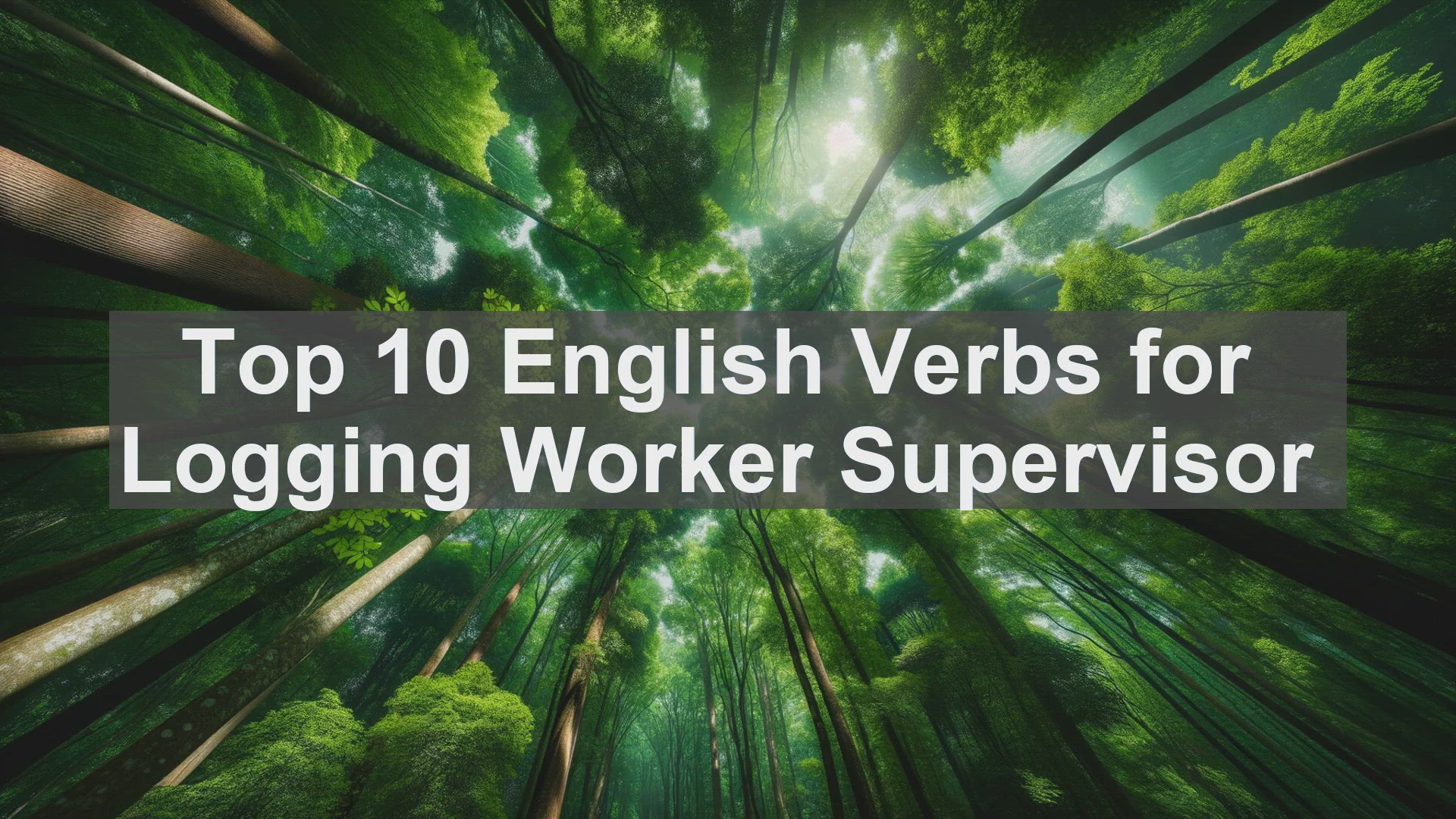
Top 10 English Verbs for Logging Worker Supervisor
1K views · Feb 17, 2024 englishteststore.net
Top 10 English Verbs for Logging Worker Supervisor Introduction: The Importance of English in Logging Worker Supervision Hello everyone! As a logging worker supervisor, effective communication is key to ensuring smooth operations and a safe work environment. Today, we'll dive into the top 10 English verbs that are essential for your role. Let's get started! 1. Assign: Distributing Tasks and Responsibilities Assigning tasks is a fundamental aspect of your role. Whether it's designating specific logging areas or allocating equipment, using the verb 'assign' ensures clarity and accountability. For example, 'I assign John to oversee the southern logging site.' 2. Inspect: Ensuring Quality and Safety Regular inspections are vital to maintain safety standards. When you 'inspect,' you're not just checking; you're actively assessing and identifying potential hazards. For instance, 'I inspect the logging equipment for any signs of damage.' 3. Communicate: Conveying Information Clearly Clear and concise communication is crucial in any supervisory role. When you 'communicate,' you're not just relaying information; you're ensuring understanding. For example, 'I communicate the new safety protocols to the team.' 4. Monitor: Tracking Progress and Performance As a logging worker supervisor, it's essential to 'monitor' the team's activities. This involves not only observing but also analyzing and providing feedback. For instance, 'I monitor the workers' productivity levels regularly.' 5. Train: Enhancing Skills and Knowledge Continuous training is crucial in an ever-evolving industry like logging. When you 'train,' you're not just instructing; you're actively developing your team's abilities. For example, 'I train the workers on the proper use of chainsaws.' 6. Evaluate: Assessing Performance and Results Regular evaluations help identify areas of improvement. When you 'evaluate,' you're not just reviewing; you're providing constructive feedback. For instance, 'I evaluate the workers' performance based on set criteria.' 7. Resolve: Addressing Issues and Conflicts In any work environment, conflicts and issues may arise. When you 'resolve,' you're not just solving; you're actively finding solutions. For example, 'I resolve the dispute between two workers through mediation.' 8. Coordinate: Ensuring Synchronization and Efficiency Efficient coordination is vital for smooth operations. When you 'coordinate,' you're not just organizing; you're actively ensuring all elements work together seamlessly. For instance, 'I coordinate the transportation of logs from the site to the mill.' 9. Document: Recording and Reporting Information Accurate documentation is crucial for various reasons, from legal compliance to future reference. When you 'document,' you're not just writing; you're ensuring clarity and accuracy. For example, 'I document the incident in the daily log.' 10. Implement: Putting Plans and Strategies into Action As a logging worker supervisor, you're not just creating plans; you're also responsible for their execution. When you 'implement,' you're actively putting those plans into action. For instance, 'I implement the new safety measures across all logging sites.' Conclusion: Mastering these Verbs for Logging Worker Supervision By mastering these top 10 English verbs, you'll enhance your communication and management skills as a logging worker supervisor. Remember, effective language use is not just about vocabulary; it's about conveying intent and ensuring understanding. Thank you for joining us today, and best of luck in your supervisory role!